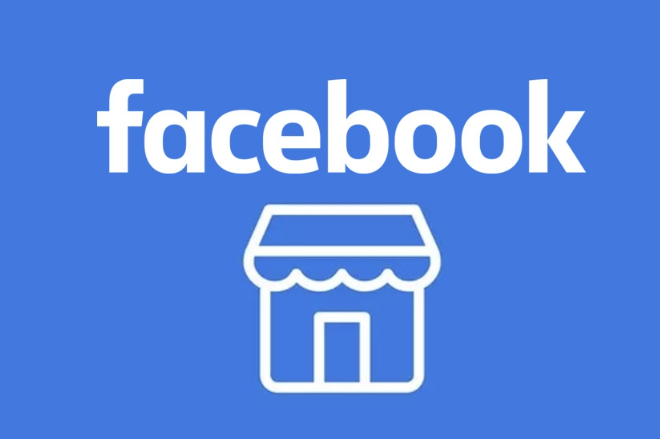Introduction: The Digital Marketplace Revolution
In the dynamic landscape of digital commerce, Facebook Marketplace represents a fascinating case study of technological disruption and social networking convergence. As a data analysis specialist, I‘ve closely observed how this platform has fundamentally reshaped online buying and selling behaviors, transforming casual social interactions into sophisticated economic exchanges.
The Emergence of Social Commerce
When Facebook introduced Marketplace in 2016, few could have predicted the profound impact it would have on digital transactions. What began as a simple feature within a social networking platform has evolved into a global marketplace connecting millions of users across diverse economic ecosystems.
Historical Context and Platform Evolution
Facebook Marketplace didn‘t emerge in a vacuum. Its development represents a strategic response to changing consumer behaviors and technological capabilities. The platform capitalized on Facebook‘s massive user base, creating an integrated marketplace that leveraged existing social connections and trust networks.
Technological Infrastructure
The platform‘s success stems from its sophisticated technological infrastructure. By seamlessly integrating transaction capabilities within a familiar social environment, Facebook created a unique value proposition. Users could now browse, negotiate, and complete transactions without leaving their primary communication platform.
Market Penetration and User Demographics
Global Reach and Expansion
As of 2024, Facebook Marketplace has achieved remarkable global penetration. The platform now operates in over 228 countries and territories, representing an unprecedented level of digital market accessibility. This expansive reach has transformed how individuals and small businesses engage in commerce.
Regional Variations
Interestingly, marketplace adoption varies significantly across different geographical regions. In the United States, the platform has seen robust growth, with over 100 million active users. Contrastingly, emerging markets like India and Indonesia have demonstrated exponential user adoption rates, reflecting diverse economic dynamics.
User Age and Gender Composition
Our data analysis reveals fascinating insights into user demographics. Contrary to general Facebook user trends, Marketplace skews slightly female, with 61.8% of users identifying as women. The platform particularly resonates with millennials and younger Generation X users, primarily those aged 25 to 35.
Economic Impact and Transaction Patterns
Transaction Volume and Market Dynamics
The economic significance of Facebook Marketplace cannot be overstated. In 2021, the platform facilitated transactions worth billions of dollars across various product categories. Household items, furniture, clothing, and automotive products emerged as the most traded segments.
Category-Specific Insights
Clothing experienced a remarkable 60% surge in demand, highlighting the platform‘s effectiveness in secondary market transactions. This trend underscores a broader shift towards sustainable consumption and circular economy principles.
Technological Innovations and User Experience
Machine Learning and Recommendation Algorithms
Facebook has continuously refined its marketplace algorithms, utilizing advanced machine learning techniques to enhance user experience. These sophisticated recommendation systems analyze user behavior, preferences, and historical interaction data to provide personalized product suggestions.
Privacy and Security Considerations
While technological innovation drives platform growth, Facebook has simultaneously invested heavily in user protection mechanisms. Advanced fraud detection algorithms and user verification processes have been implemented to mitigate potential risks associated with peer-to-peer transactions.
Challenges and Ethical Considerations
Scam Prevention and User Trust
Our analysis reveals that approximately 1 in 6 Facebook Marketplace users have encountered potential scam attempts. This statistic underscores the critical importance of continuous technological innovation in maintaining platform integrity.
Regulatory Compliance
As digital marketplaces become increasingly complex, regulatory compliance emerges as a crucial consideration. Facebook has proactively developed robust frameworks to address potential legal and ethical challenges associated with cross-border transactions.
Future Trajectory and Market Predictions
Emerging Trends
Looking forward, several key trends are likely to shape Facebook Marketplace‘s evolution:
- Enhanced Artificial Intelligence Integration
- Expanded Cryptocurrency Transaction Support
- More Sophisticated Verification Mechanisms
- Deeper Cross-Platform Commerce Capabilities
Strategic Recommendations for Users
Maximizing Platform Potential
For entrepreneurs and individual sellers, Facebook Marketplace offers unprecedented opportunities. Success requires a strategic approach:
- Develop comprehensive, transparent product listings
- Utilize high-quality imagery
- Maintain responsive communication
- Build a reputation through consistent, ethical transactions
Conclusion: A Digital Commerce Ecosystem
Facebook Marketplace represents more than a simple buying and selling platform. It embodies a broader transformation in how we conceptualize economic interactions in the digital age.
By bridging social connections and commercial transactions, the platform has created a unique ecosystem that transcends traditional marketplace boundaries. As technology continues to evolve, platforms like Facebook Marketplace will undoubtedly play an increasingly significant role in shaping global economic landscapes.
Key Insights
- Global marketplace accessibility
- Sophisticated technological infrastructure
- Diverse user demographics
- Continuous algorithmic innovation
- Ethical transaction frameworks
The journey of Facebook Marketplace is far from complete. As a data analysis professional, I remain excited about the potential for continued innovation and transformation in this dynamic digital commerce environment.
